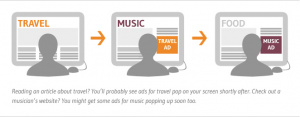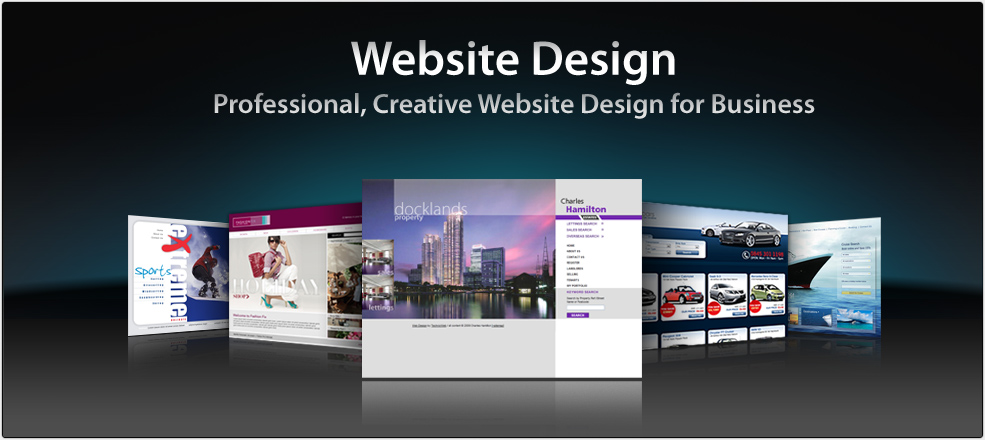Welcome to Lemon7 Advertising & Marketing Online !
Please contact us to get Better Ideas !
– Email : [email protected]
– Donate to promote your brand : paypal.me/lemon7me

1. What is Advertising Online
Advertising Online is a broad term used to describe the paid advertising that publishers put on their websites and mobile applications to enable them to provide you content and services for free. Some digital advertising is tailored to your likely interests by companies promoting their products or services. This is known as Interest-Based Advertising (IBA) when it occurs across websites and Cross-App Advertising (CAA) when it occurs across apps.
2. What is Marketing Online
Marketing Online includes all marketing that takes place on the Internet or electronic devices. Online marketing includes search engine optimization, social media advertising and public relations, email and, of course, the organization’s websites used to reach out to the public.
SEO is an important part of any online marketing strategy because it harnesses the power of the search engine to capture inbound traffic. SEO is incorporated into websites, content and blogs with the objective of achieving a higher ranking on the search engine return page. Equally important to the online marketing strategy is social media advertising. Brand recognition is vital and the sheer reach of platforms such as Facebook, Instagram, YouTube, Twitter and others offers the organization an easy way to reach millions.
Your customers can engage with your brand 24/7 through the Internet. Companies with no online marketing strategy will lose out to the competition.

3. What is web design
If you’re trying to convince your company to invest in web design, it’s critical that they understand the focus of web design. This service consists of the development, build, and launch of a website. That includes a variety of tasks, like the following:
- Choosing a color scheme
- Writing website copy
- Creating a site hierarchy
- And more
Due to the number of tasks, several specialists work in website design. They include graphic designers, web developers, project managers, and more. That’s why many companies partner with a web design agency for comprehensive services.
Whether your company operates offline or online, it’s critical to have an online presence. A website allows you to connect with more than 55 percent of the world’s population — which means the Internet provides your business convenient access to your target audience.
What are some other reasons for web design, though? Discover its three biggest benefits:
3.1. WEB DESIGN IMPROVES CUSTOMER SATISFACTION
With almost 90 percent of consumers shopping with a competitor after a poor user experience (UX), it’s a tremendous advantage if your company invests in web design. With professional web design, you can ensure your website provides the best UX possible. What is UX, though?
UX design refers to a few concepts, including the architecture or arrangement of your site. It’s overall goal, however, is to provide a user-centric experience. Meaning, it’s easy and intuitive for people to use your website — they don’t run into issues, become confused, or get lost on your site.
The best part is that more than 85 percent of shoppers are happy to pay for better UX. It’s a fact that emphasizes how much value consumers put on web design. They want a seamless and hassle-free experience when shopping, and they’re willing to pay for it.
3.2. WEB DESIGN INCREASES CONVERSION RATES
According to consumers, 75 percent of your credibility also comes from your site’s design. Another fact that demonstrates your website’s influence on conversion rates? When it comes to first impressions, almost 95 percent of them relate to web design.
If your website doesn’t convey credibility or features poor usability, that pushes users away from your site. When that happens, your conversion rates — and your profits — drop. That’s why web design is so critical. It can help your company maintain your conversion rates, as well as increase them.
3.3. WEB DESIGN DELIVERS IMPRESSIVE ROI
With web design’s massive ROI, it’s easy for company decision-makers to recognize its potential value. For perspective, the average ROI of UX is $100 for every $1 invested — that’s a significant return. It’s essential, however, to partner with a web design agency that prioritizes your ROI. What that means is your agency focuses on the appearance and functionality of your website so that it delivers the best return and UX possible.
4. Explore the cost factors of web design and development
4.1. Why does a domain matter ?
Your domain name is essential because it creates an online identity for your website. A domain name also establishes credibility with site visitors and potential customers while helping you grow your brand. It’s also valuable because if you ever change your hosting, your domain name will go with you.
If you’re interested in online advertising — or pay-per-click (PPC) advertising — your domain name also plays a role because it’s where you direct users that click on your ad. Without a domain, you force your business to direct traffic elsewhere, like social media.
4.2. Why does an SSL certificate matter ?
In today’s digital landscape, users share a tremendous amount of sensitive data online. From entering their credit card information when purchasing a product to providing their name and email when signing up for a newsletter. As a business, you want users to take similar actions on your site.
If your website appears untrustworthy, however, consumers will not interact with it, which doesn’t help your company increase its revenue, build its email subscriber list, or improve its lead generation efforts. Internet browsers, like Chrome, also alert users when they visit a site without a valid certificate. With an SSL certificate, you can demonstrate the credibility and safety of your website.
4.3. Why does website hosting matter ?
While essential, website hosting also matters for the following reasons:
- Impacts page loading times
- Influences website expansions
- Affects customer support during site issues or crashes
In short, your hosting provider has a massive impact on how your website functions. While free hosting services exist, it’s rare for companies to use them because these organizations do not offer tech support.
4.3. Why does web design matter ?
From the perspective of users, as well as search engines, web design is critical. Studies show that when it comes to users, 94 percent of their first impression relates to web design. If your site appears outdated or makes navigation difficult, users will leave your website. Even worse, their opinion of your brand will drop.
Google and other search engines also care about your site’s functionality, performance, and design. They want to provide users with relevant results and the best online performance, so if you have a slow, unusable website, they won’t display it at the top of search results. Instead, your site will appear pages back, losing a substantial amount of traffic.
4.4. Why does responsive design matter ?
With more than half of the world’s Internet traffic coming from mobile devices, it’s clear that users are changing the way they browse the Internet. That’s why it’s critical for companies to invest in responsive web design.
If your business bypasses responsive design, it can have a noticeable impact on your website’s performance — undoing your investment in a well-designed website. As an example, consider that more than 65 percent of users are more likely to purchase from a company with a mobile-friendly site. A responsive design ensures your website supports every member of your target audience.
4.5. Why does database integration matter ?
Depending on your business, you may have an internal or third-party database, which stores valuable company and customer information. A database may feature client account information, for example, which users can access by logging into your website. If you want to make that information accessible to your team or clients, then you need to integrate a database into your website. Whether you’re adding a custom or third-party database to your site, this task requires developer expertise.
A database integration matters from a user- and company-perspective.With an integrated database, your team and shoppers can access helpful information via your website. This feature eliminates easy-to-solve questions, like account balances, product orders, or appointment dates, which can save your support team valuable time.
Even better, a database can help your business offer unique perks to shoppers. For example, a database can allow your company to provide a loyalty program to customers or send exclusive offers to repeat shoppers. For ecommerce businesses — or even offline service providers — database integration is a useful addition to your website. It helps your team, as well as your shoppers. Plus, it serves as a unique selling point (USP) for users that prefer online convenience.
4.6. Website pages
A website needs content, which is why most freelance designers and web design agencies scale their rates by the number of pages. A few factors, like your products, services, and business, can influence your page count.
An ecommerce store with an expansive product line, for example, will probably require more pages than a local bakery. If you’re investing in web marketing, your company may purchase additional pages to support your content marketing or SEO strategy. In most cases, web designers and web design agencies will scale their pages prices as follows:
- 1 to 10 pages: $500 to $1,000
- 10 to 50 pages: $1,000 to $2,000
- 50 to 150 pages: $2,000 to $5,000
- 150 to 250 pages: $5,000 to $10,000
If you’re redesigning your website or launching a brand-new one, your web design team can help your business determine how many pages your website needs. With an accurate page count, designers can create an intuitive and smart layout for your site.
4.7. Interactive media
For businesses looking to build brand awareness, explain complex products, or engage users, interactive media is a go-to tool. It works because it relies on user interaction, providing website visitors with an engaging experience that responds to their actions and decisions.
That’s why interactive media prices vary widely, from $250 to $10,000. In most cases, the more development work interactive media requires, the more it will cost. That’s why many businesses will partner with an agency versus a freelance developer, as freelancers may charge an hourly versus flat rate for their services.
4.8. Ecommerce functionality
Ecommerce functionality encompasses several tasks, including:
- Adding a payment processing system
- Installing payment gateways
- Testing shopping carts, payment options, and shipping systems
- Launching product pages
If an ecommerce business wants to succeed online, it’s critical to have ecommerce functionality. Without a payment gateway, shopping cart, or shipping system, your company cannot accept or process online orders. For your website, an ecommerce system is essential. As it’s vital to your operations, your team needs to consider the cost of ecommerce functionality in your web design budget. It’s also critical for your company to invest in an ecommerce system that provides the best experience for shoppers.


